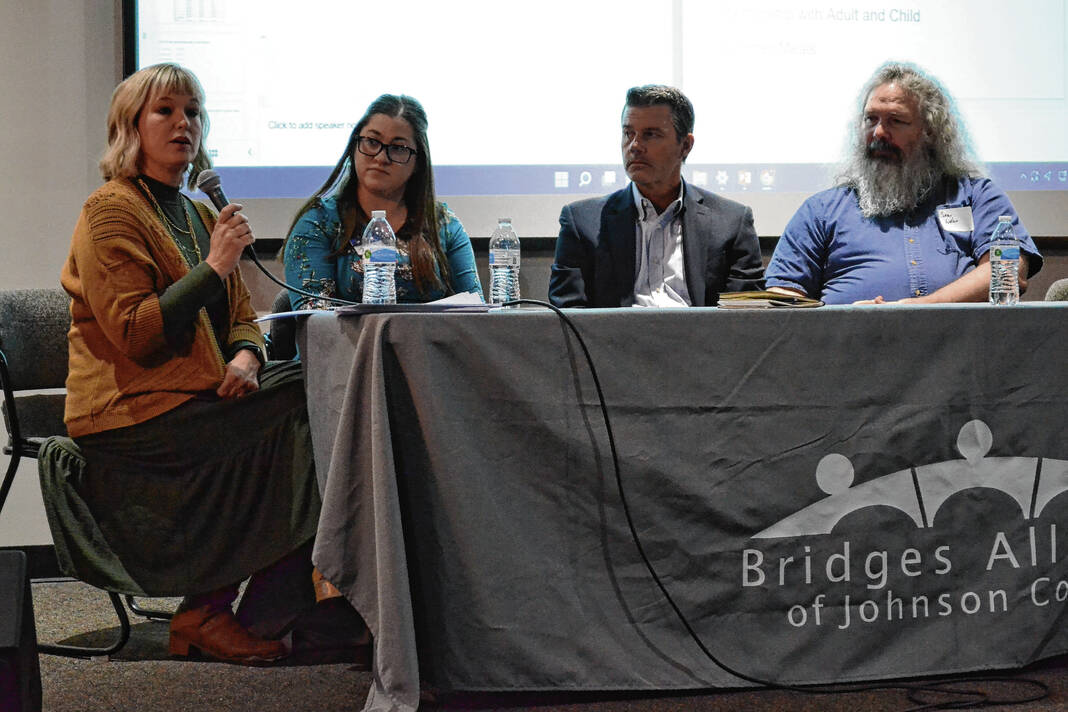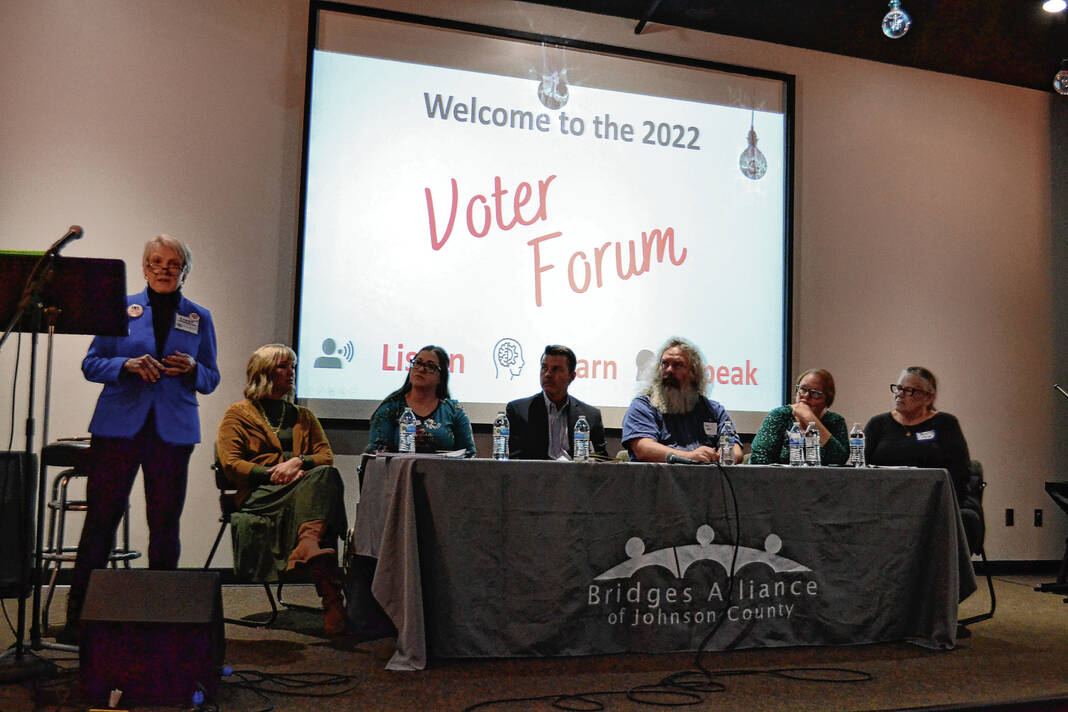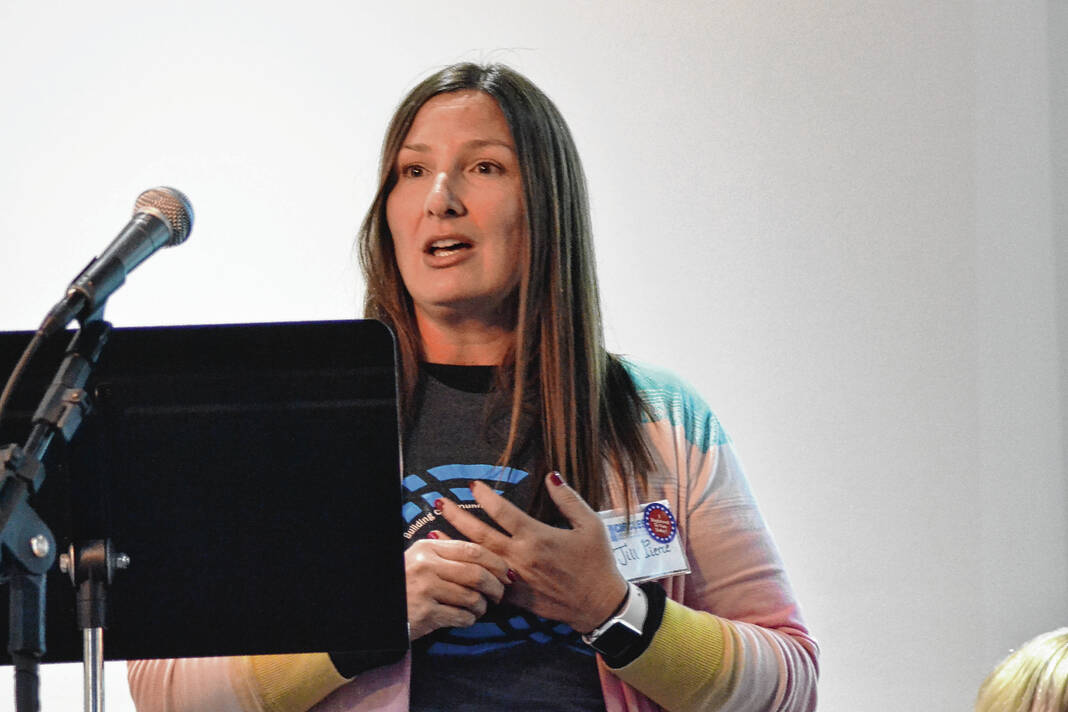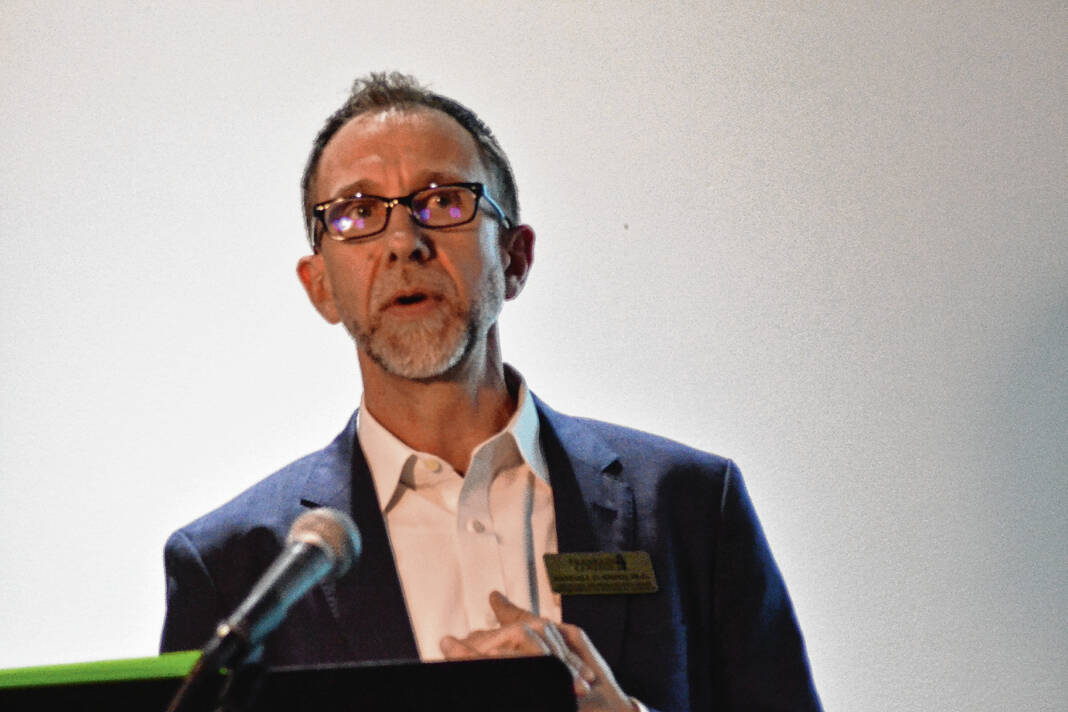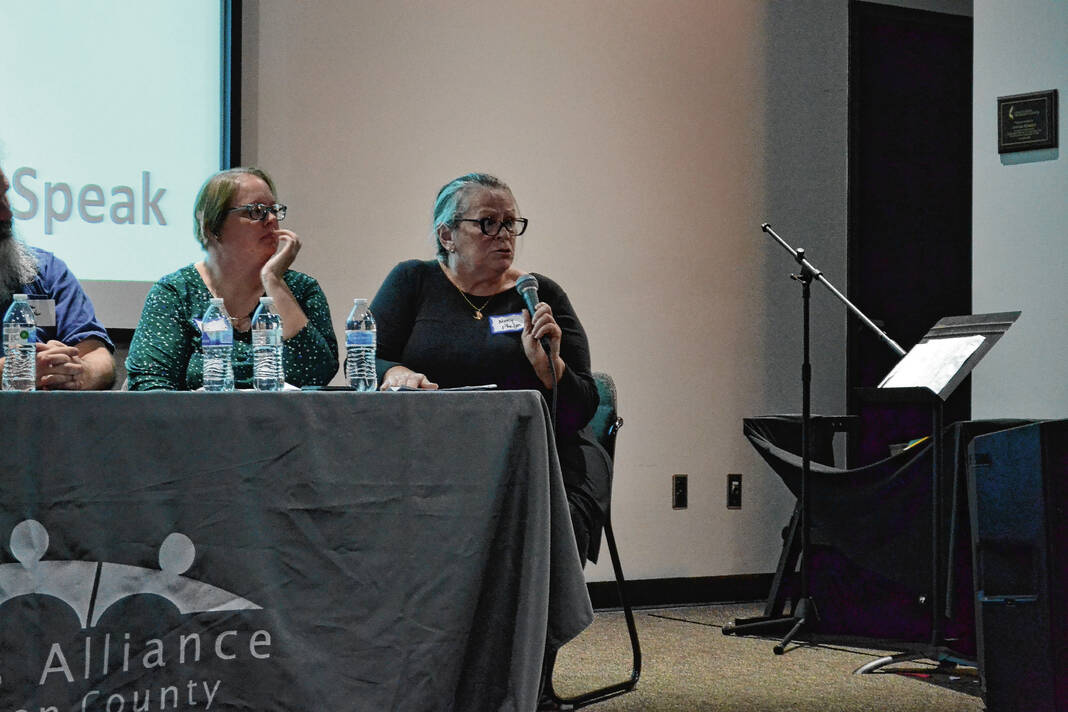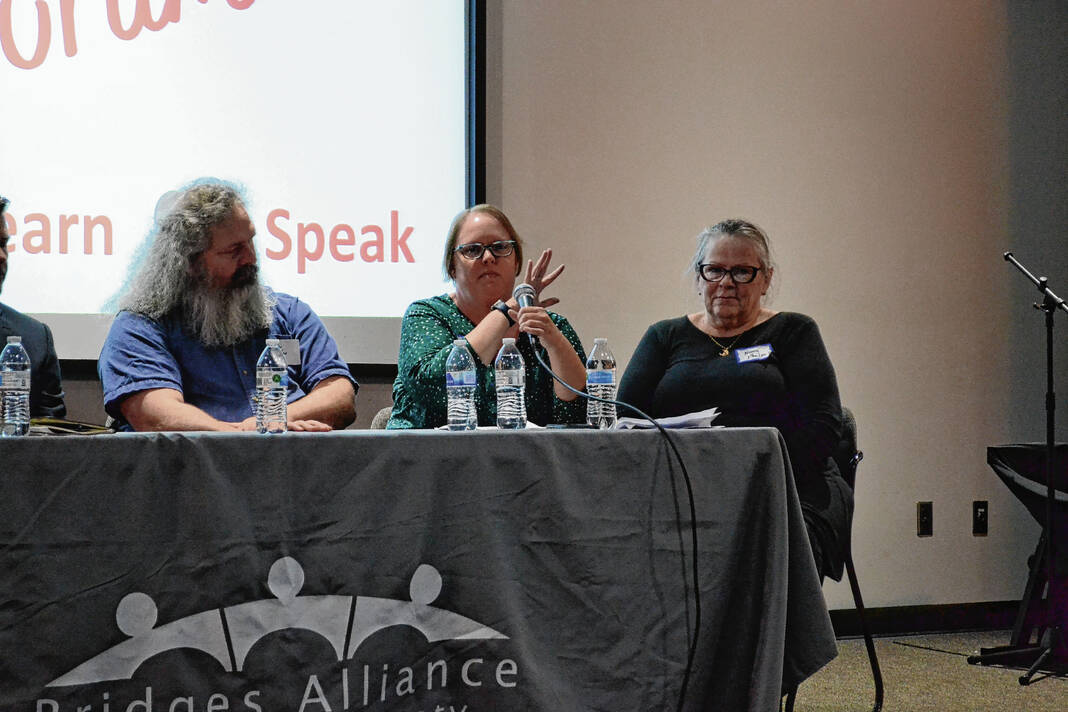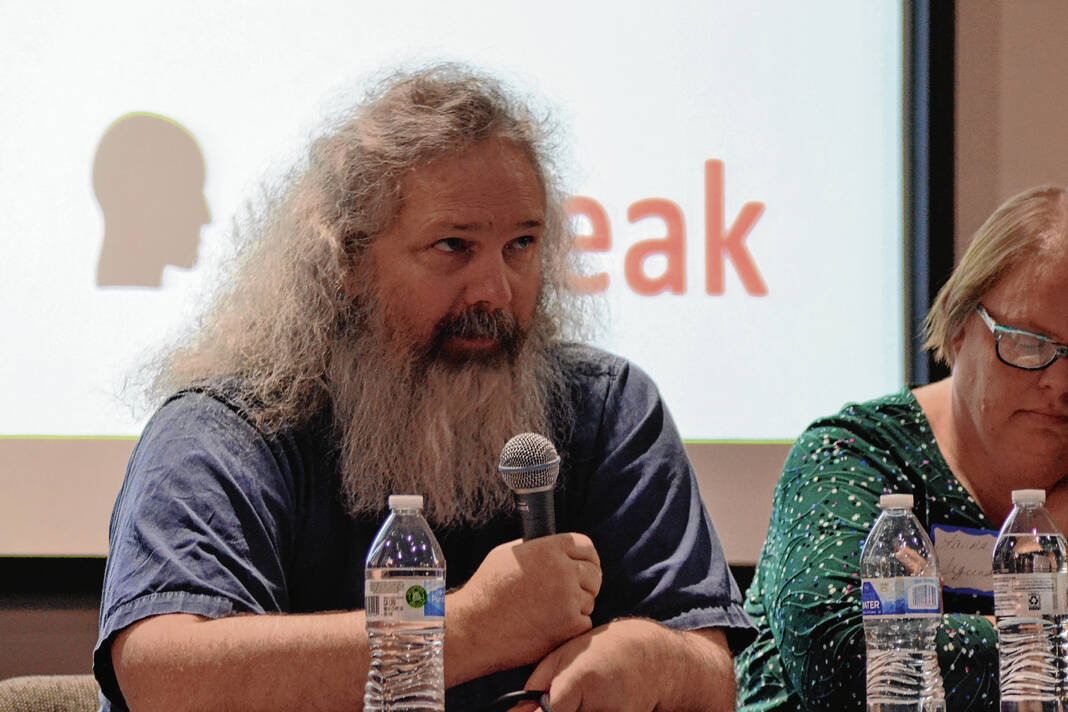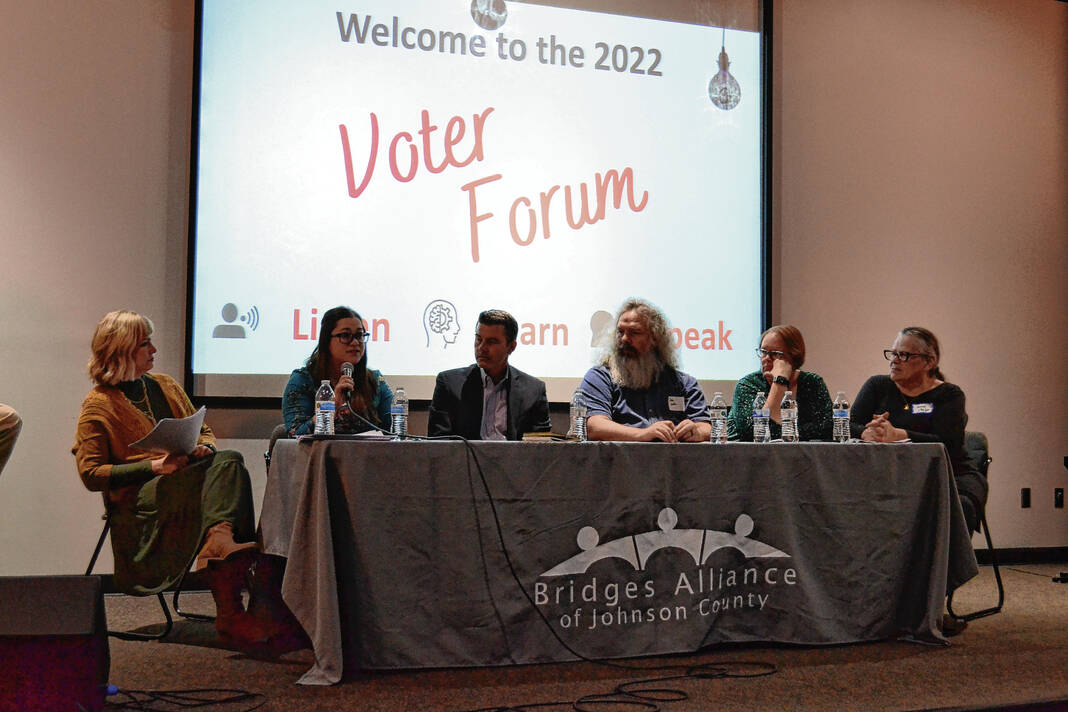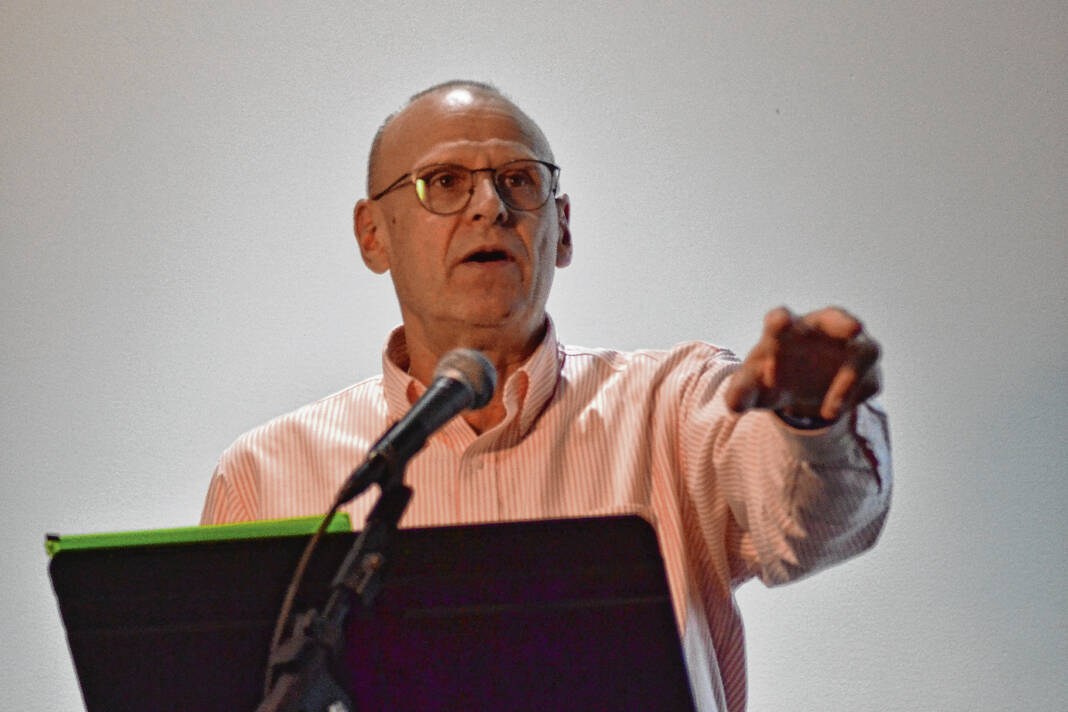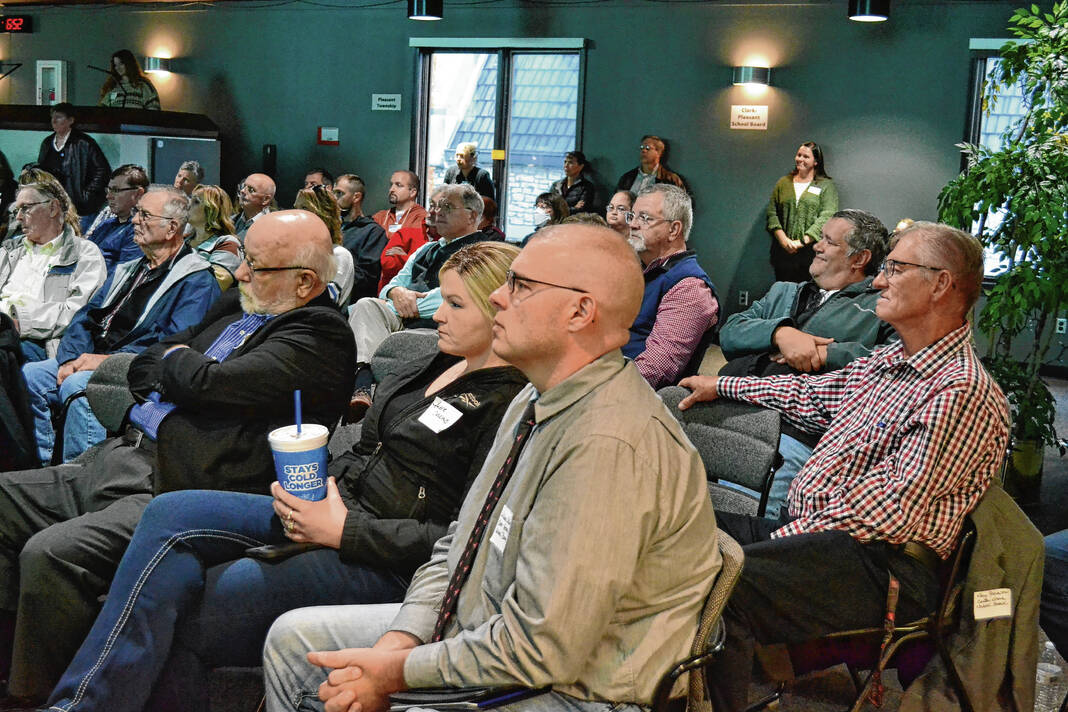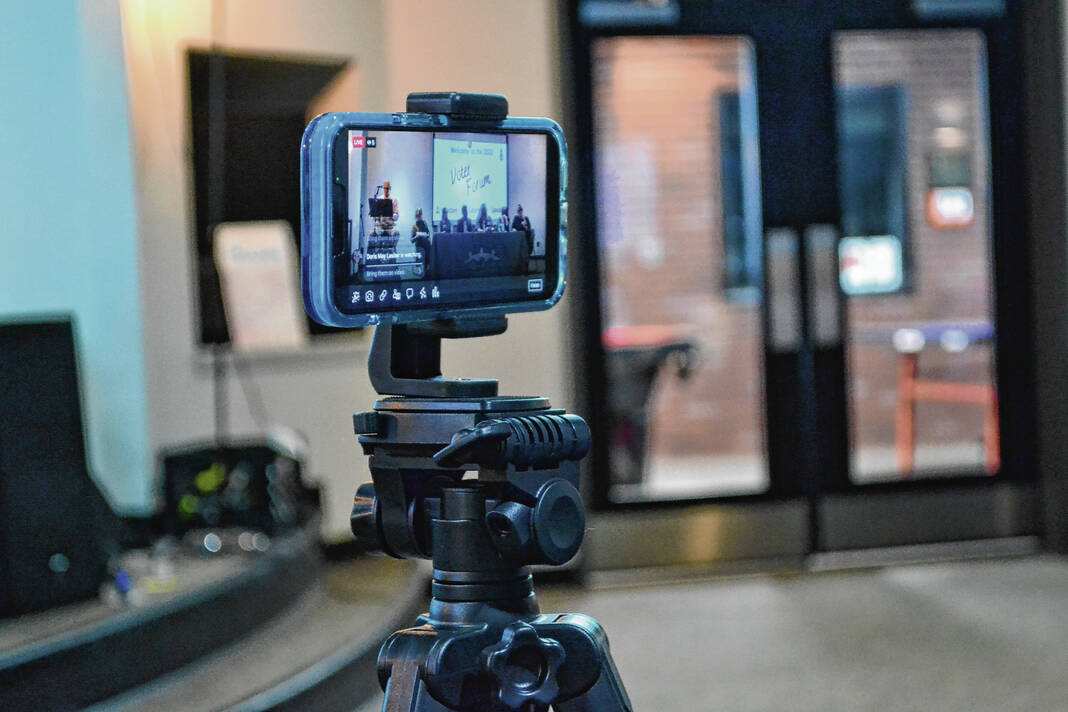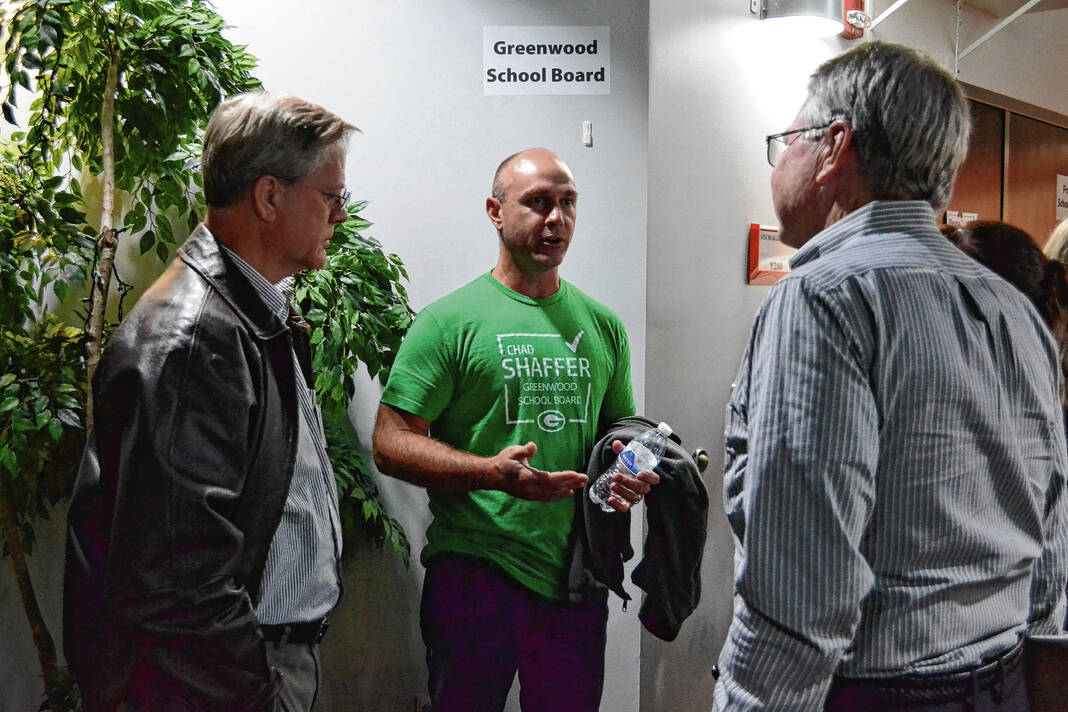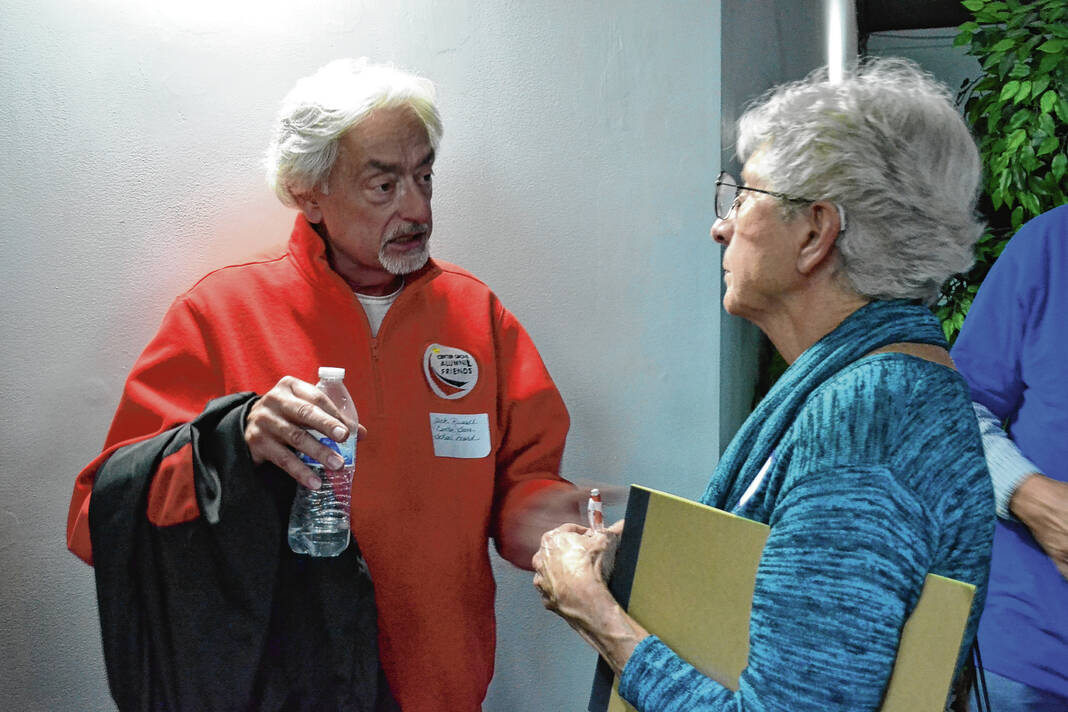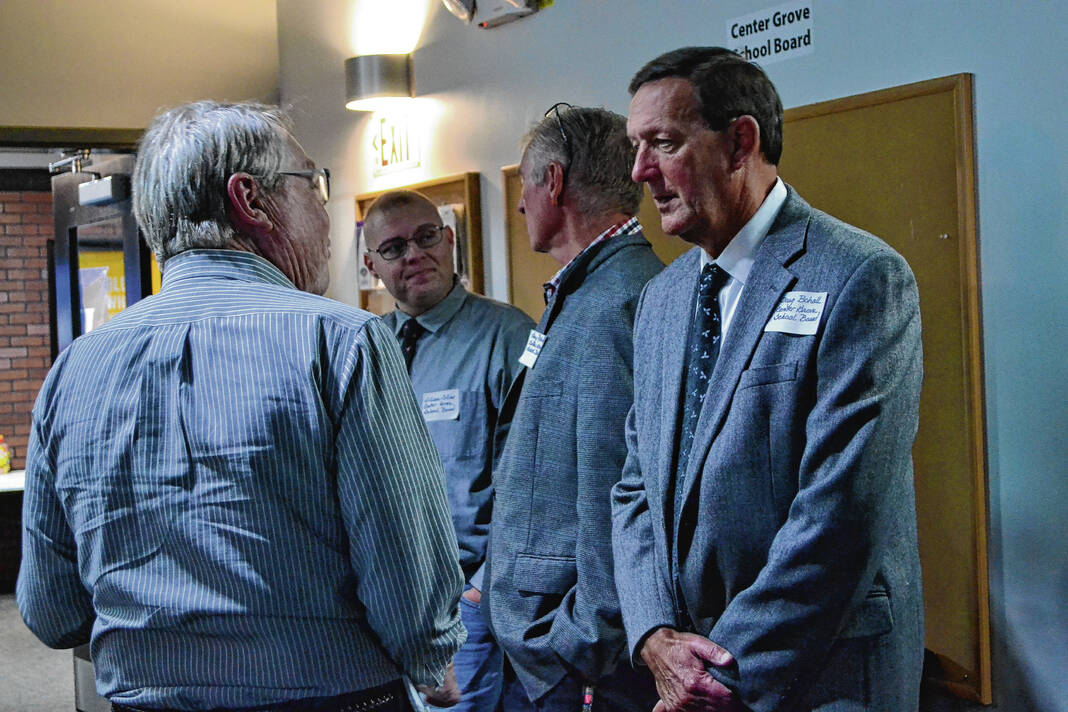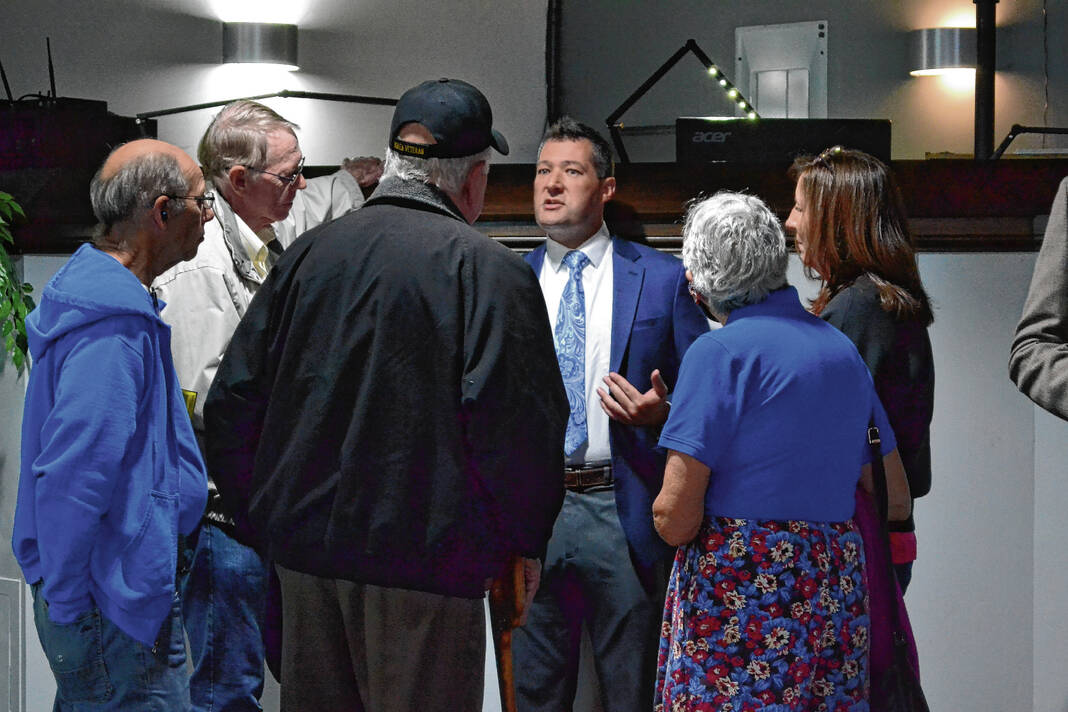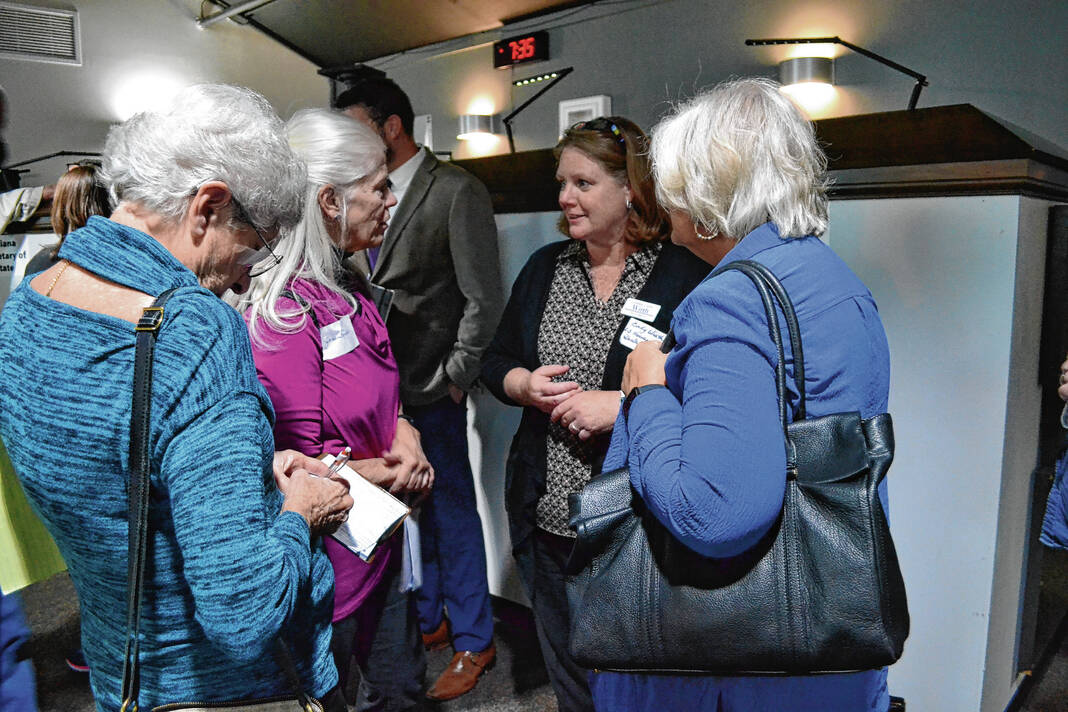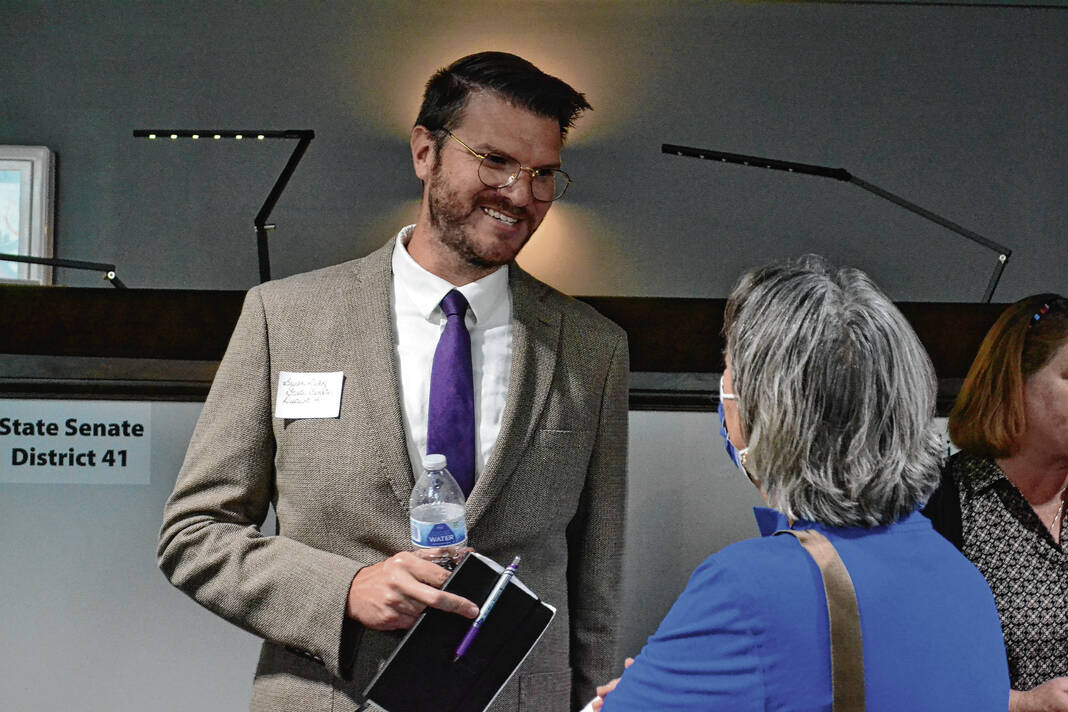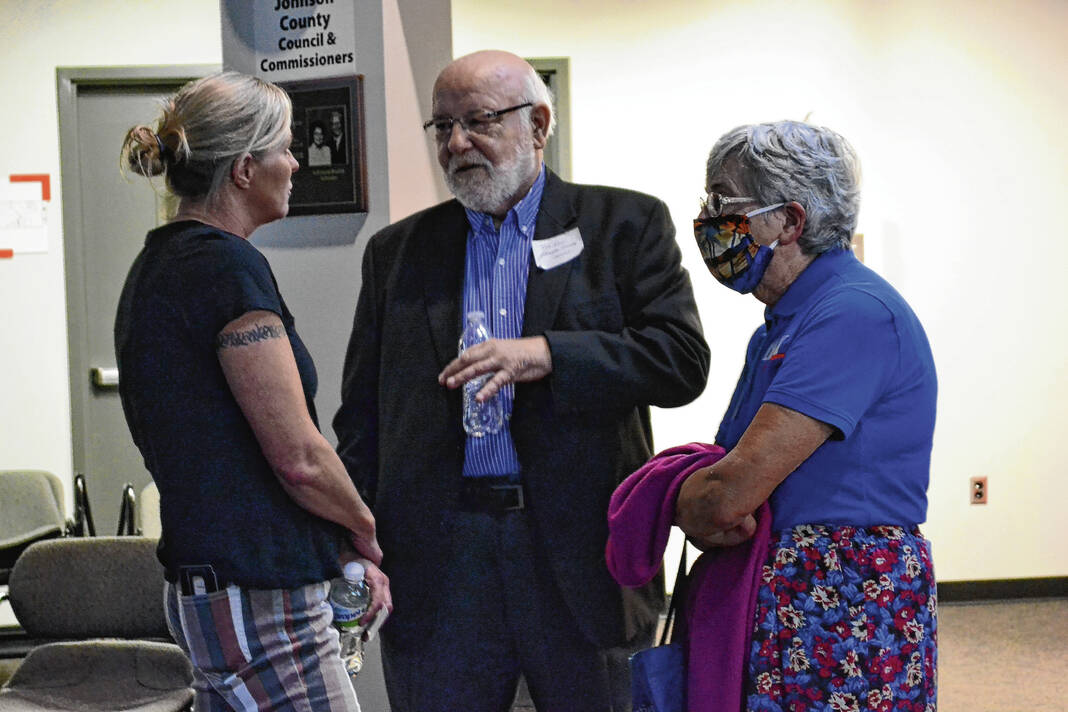Voters, candidates and elected officials heard panelists discuss what they think are the most pressing issues in Johnson County during a forum on Wednesday.
Organizations from across the county came together to host a county-wide, nonpartisan voter forum where citizens, candidates on the ballot this November engaged in discussions to learn about issues facing the area. The forum took place Wednesday night at Grace United Methodist Church in Franklin.
The event was sponsored by the Bridges Alliance of Johnson County, Daily Journal, League of Women Voters of Johnson County, Franklin College Department of Political Science, Home Bank and Horizon Bank. It was described as a “reverse” forum, where voters and community members can talk about issues they care about most while candidates listen.
All federal, state and local candidates from all political parties appearing on Johnson County ballots this fall were invited. Ultimately 21 candidates attended the forum — eight non-partisan school board candidates, six Republicans, six Democrats and one Libertarian.
In 2020, Indiana was ranked 41 out of 50 states for voter turnout for the presidential election, meaning that only 58% of Hoosiers who were eligible to vote cast a ballot. During the last midterm election in 2018, 47% of eligible voters in the Ninth Congressional District actually voted, said Randall Smith, a political science professor at Franklin College.
“That means the majority of our neighbors did not vote. That’s a concern folks,” he said. “It also calls us to action; it spurs action.”
Basic needs not being met
Panelists discussed some of the most pressing issues in the community and how they’ve been affected by them.
Nancy Phelps, a circle leader with Bridges Alliance, spoke about her struggle with finding affordable housing. When she moved into an apartment in 2019, she was later told her rent was going to increase to the median rent of about $1,000. Phelps was on Social Security at the time, and later joined the Circles program to learn more about resources and housing issues.
“Now I have a job, and another thing I got a raise,” Phelps said. “I’m still faced with, ‘How am I going to manage all of that? I’m still needing answers.’ Then once I get my answers, I’m committed to Circles to still advocate for new circle leaders that we have coming.”
Steve Saunders, a pastor at Mount Pleasant Christian Church’s Impact Center, has heard stories like Phelps’ before. He’s seen people not only struggling for affordable housing, but also for housing stability.
Earlier this year, Saunders helped a couple of women bring food home from the church’s food pantry because of an issue with their ride. The women lived at a motel, and one of them was excited to tell him about how the property owner had been working to clean up the place.
“She was very, very proud to say that now they don’t have a problem with roaches; that they come twice a week and spray,” he said. “I was so humbled to hear that statement (about) things that I so easily, and I think a lot of us in this room, take for granted.”
Local jobs not for all
Circle leader Sean Wallace spoke about his experience trying to a good-paying job with transportation issues. After he moved to New Whiteland from Mississippi six years ago, he tried to find an information technology job. However, he couldn’t find anything in Johnson County, so he decided to look for a warehouse job.
He was trying to find a local warehouse job that paid better than minimum wage in the county but wasn’t able to at that time. He ultimately began working at a warehouse in Indianapolis, and to get to his job, it was a two-hour bus ride from New Whiteland to Indianapolis, he said. Now, he works in insurance, which gives him the opportunity to work from home.
Still today, the baseline pay for the jobs like he was looking for in Johnson County are lower compared to what can be found on the north side, Wallace said.
Laura Segundo, another circle leader, spoke about her experiences with working from home and the importance of internet access. She and her 12-year-old daughter were diagnosed with COVID-19 in December 2020, and while her daughter recovered quickly, she did not.
At the time she caught COVID, she worked at a full-time job from home. However, now she only works part-time because she still struggles with long COVID, and is looking for a full-time job that can accommodate her issues, she said.
She moved to Franklin from Greenwood earlier this year, and the area she lives in now does not have reliable, hardwired internet. Right now, she has to use an internet company that is WiFi only, but this is not enough for many remote jobs, including the one she had before, she said.
Issues all connected
Kathleen Ratliff, director of Upstream Prevention, said her organization focuses broadly on public health and the system-level changes needed that are related to housing, income and transportation. About 50% of someone’s health can be tied back to the quality of life, with the other half being what people traditionally think of as health, she said.
Johnson County is one of the healthier counties in the state, however, that achievement pales because Indiana ranks among the worst in the country for mental health care. Part of this is due to access to care. If individuals don’t have access to the resources they need, they sometimes self-medicate, leading to substance abuse, she said.
All of these issues are interconnected, she said.
“I could sit here and tell you that if we had housing for everybody that would solve a lot of problems and it would, but if we don’t have jobs for them, we don’t have coding skills or access to care, we’re only fixing part of the issue,” Ratliff said.
Ali Sever, an 8th Grade Science teacher at Franklin Community Middle School, spoke about the challenges students are facing. All of the housing, job, health and internet issues their parents are facing, trickle down to kids and make it tougher for them to succeed in school.
Sever has taught since 1999, and the last three years of teaching have been the hardest of all. There are more behavior issues like fewer students are turning in assignments, and fewer students are being respectful toward teachers, she said.
There are also a significant number of students who are homeless or housing insecure, and on free and reduced lunch, including some of her own students, Sever said.
Candidates, voters share why they came
Candidates and voters came to learn from each other, they said.
Les Tabeling, a Franklin voter who attended the forum, said the panel shared a lot of information about issues that are lesser known to some people, he said.
“I thought that was really good to educate the audience about what’s happening in Franklin and Johnson County,” Tabeling said.
Michelle Waugh Dahl, a Democrat running for the Franklin Township seat on the Franklin Union Needham Township, or FUN, Board, said the panel really spoke about issues that are important to the county and the city of Franklin. The panel was a microcosm of the county as a whole, and the issues had been studied for a couple of years, they said.
“I used to help out with Bridges Alliance, so to know that this has come to fruition to be brought before candidates and elected officials today is a huge deal because we can have these issues that if we’re not taking it to the people who are in charge of making the calls and making these changes, it’s kind of just like an echo chamber,” Waugh Dahl said.
Jeannie Barnett, Republican incumbent for Franklin township seat on the FUN Township Board, said she attended the forum to hear about the issues from voters.
“It’s pretty much what we kind of already deal with at the trustees’ (office) so we understand where they’re coming from,” she said. “I just wanted to see if we were all on the same page.”
Becky Nelson, incumbent for the Franklin School Board’s Union Township seat, said the forum was a good opportunity for her to hear voters’ concerns.
“Having something like this — that’s intentional — they can come and speak what their concerns are, it helps us to know what people are thinking and how we need to make decisions for them,” Nelson said.
The campaign platform for Chad Shaffer, a first-time Greenwood School Board candidate, is about community and open communication, so being able to meet with voters at a forum is a good way to start that process, he said.
“For Johnson County organizations to put things together like this, to open up access to electors, sounds like that’s one of the greatest needs in our area,” he said. “I’m glad that they’ve been doing this and hope more that more candidates can come out and join in these efforts.”
Voters have the right to choose who they want to serve them and taking part in a forum, or a debate, allows them to see their options side-by-side, said Jeff Mauer, the Libertarian candidate for Secretary of State.
“This is the hard work that we have to do in serving our state and serving our neighbors because we have to be present we have to be accountable,” Mauer said. “We have to be available for comparison shopping.”
With voter turnout typically low, people really need to show up to vote, said Suzanne Fortenberry, the Democratic candidate for White River Township Trustee.
“We need everyone to show up and let their vote count because for these positions, down from the school board all the way up to the Secretary of State, it’s important for the candidates to hear what’s important to the voters so we can work for the people,” Fortenberry said.
SEND FEEDBACK
Bridges Alliance of Johnson County is looking for feedback for its first Voter Forum. Hearing several different points of view helps strengthen communities and gives community members opportunities to grow and learn together, the organization says.
Because this was the first event, officials say they know there are parts of the evening that could be improved.
To submit comments email [email protected]. The comments will be kept within the planning committee of the event.
CORRECTION: 10:31 a.m. Oct. 21
A previous version of this story had an incorrect percentage for the voter turnout for Hoosiers in the 2020 election. 58% of eligible Hoosiers voted in the 2020 election, not 8% as originally reported.


